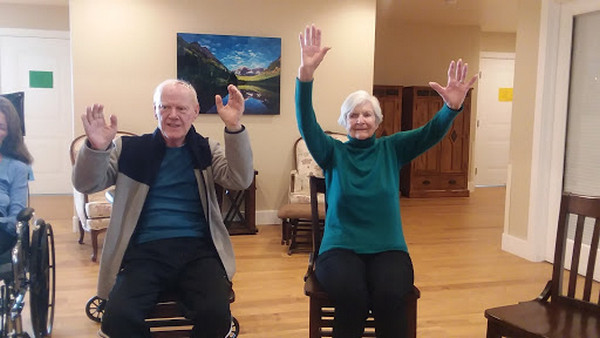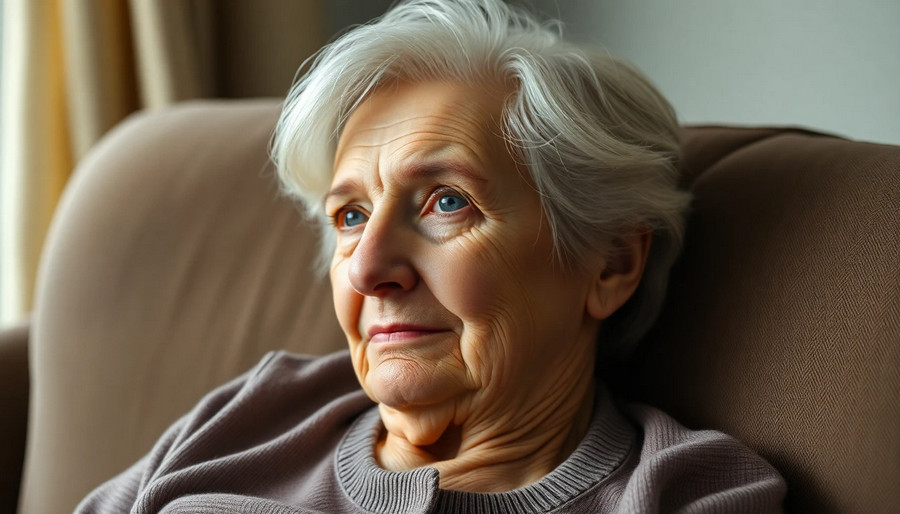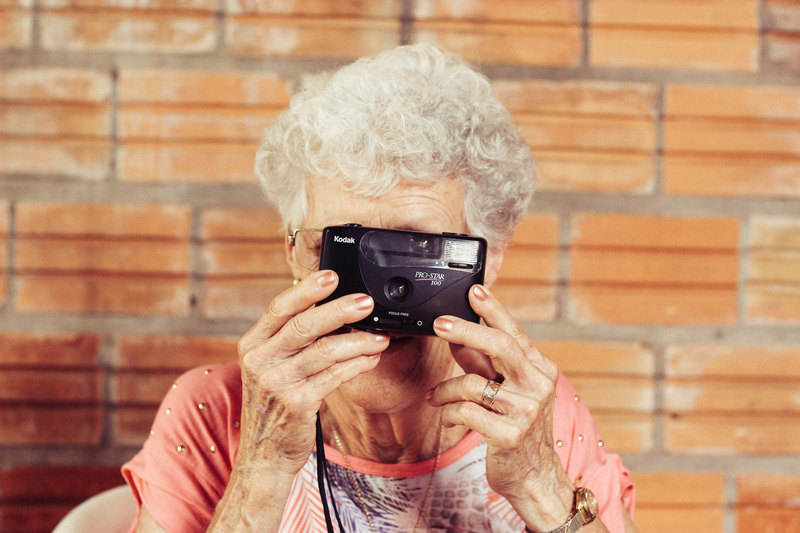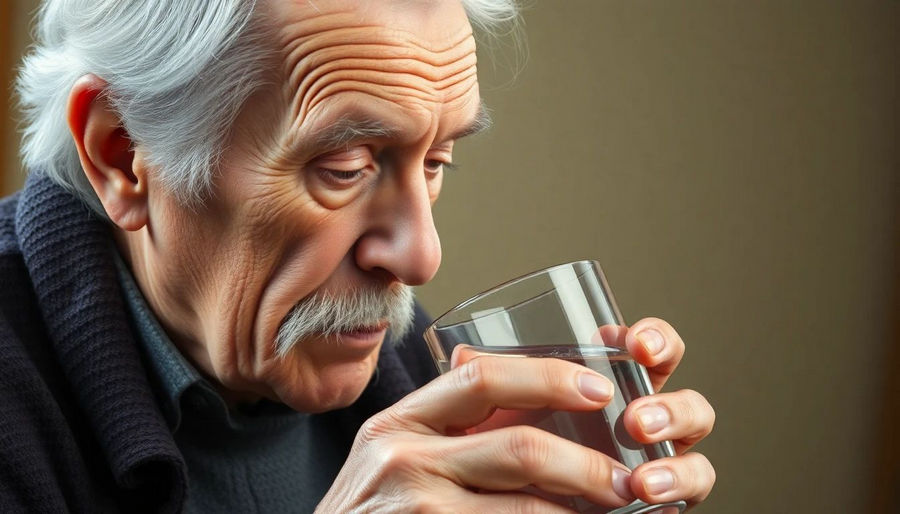When you think of being outdoors, what is the first thing that comes to mind? Maybe you imagine being in a park, getting some fresh air, or being on vacation. However, some people don’t think about the health benefits of being outside for seniors.
The outdoors are being called “the new seniors’ gym” by researchers. Spending more time outside not only helps senior health – it may even be the key to a long life! Nature has been shown to improve attention span, memory function, and more for seniors.
According to a British scientific report, “Spending at least 120 minutes a week in nature is associated with good health and wellbeing.”

Here are 17 health benefits of being outdoors for seniors that everyone should know.
1. Active Bodies are More Youthful
Being active can help to slow down the natural aging process. When being outside, you have more opportunities for physical activity, which is great for your health and fitness levels. In addition, sunshine and fresh air make you look great!
2. Fresh Air Stimulates the Nervous System
Heading outdoors gives you a chance to get some fresh air and marvel at the impressive surroundings. In addition, it’s been noted that being outside can help with your mood and keep you calm when feeling overwhelmed or stressed out.
3. Exercising is Great for the Cardiovascular System
Being outside gives you a chance to exercise and be active. You can help keep your heart healthy by pumping blood through the body, which reduces high cholesterol levels and lowers your risk of developing cardiovascular disease in general.
It’s been shown that being active for 30 minutes per day is enough to improve health outcomes!
4. An Active Lifestyle Prevents Deadly Diseases
Staying active outside reduces your risk of being diagnosed with type-II diabetes, heart disease, stroke, and certain cancers.
Based on the National Cancer Institute data in 2010, being physically active to reduce cancer rates is a major contributor to lowering death rates for breast, colorectal (colon), esophagus, endometrium (uterus), kidney, and liver, among other types of cancer.
That’s right – being outdoors can help you live longer!
5. Moving Around Outside Improves Balance and Motor Skills
Extra movement outdoors helps keep your balance and motor skills in good condition.
It’s shown that being active outside helps preserve movement, even for people who are elderly or have physical limitations, because it is not always possible to move around inside the home as much as you would like.
Being physically active can help reduce falls by up to 50%! That means fewer trips to hospitals due to injury when you’re outdoors being active.

6. Being Outdoors Helps with Cognitive Functions
Being in nature can help improve memory, and being outdoors has been shown to increase cognitive function.
In one study, it was found that being outside improved attention by 40%! That’s huge for seniors who have a mental illness like ADHD because outdoor stimulation helps people be more alert, which means less distractedness.
7. A Healthy Mind Means a Healthy Body
Spending more time outdoors can help fight off depression, especially being in green spaces.
Studies have shown an increased amount of time outside also increases physical activity, which improves mental health as well!
8. Walking in Nature Reduces Stress, Anxiety, and Depression
Quality time outdoors can reduce stress, anxiety, and depression. However, remaining indoors all day means that we are constantly bombarded with artificial light that interferes with our circadian rhythms and prevents us from feeling relaxed.
Those effects disappear when we go outside because sun exposure stimulates serotonin production, which regulates moods so much.
The natural beauty of being in nature is a huge benefit for lowering stress. Nature improves moods and reduces stress levels meaning your brain will work better when being active outside.
When you’re outside, it’s easy to get lost in your surroundings. You can remove any sense of being trapped or stressed out by what’s going on inside.
When you live close enough to the mountains or a forest where they have walking trails, you have the best of both worlds. There is nothing like being immersed in nature while still getting exercise at the same time!
9. Getting Fresh Air Boosts Endurance and Stamina Getting out and being active will help you build your endurance. As a result, you’ll get more fit, have higher stamina, and be able to do more things outside without becoming fatigued quickly.
Being outdoors helps the body detox by exposure to fresh air that we cannot get indoors. In addition, natural light lets our bodies produce vitamin D, which is an important nutrient for health as well!
Even sitting on a bench while watching people go about their days feels refreshing because there are many different types of people being active.
10. Nature Hikes Restore Energy and Alertness
Nature hikes are a good option for seniors because being around plants outdoors makes people feel more energized and less tired.
Another benefit of being outside on a trail is that it can help to improve your memory with all the new sights, smells, sounds, and other stimuli which our brains need as stimulation. Plus, being out there gives us time to think about things without distractions from technology or household tasks to develop some new ideas or relax our minds.

11. It Helps Seniors Sleep Better at Night
When it comes to good sleep habits, seniors are no exception. So why not take a morning or evening walk outside to reap the benefits of natural light?
12. Outdoor Activities Reduce Pain and Improve Mental Health
Being outdoors can reduce pain and help with chronic diseases. Research has shown that patients recovering from illness or surgery who spent sufficient time in nature required fewer painkillers, had shorter hospital stays and experienced fewer complications. Finally, being outside provides a distraction from other things seniors may be dealing with daily, such as arthritis.
13. It Improves Vision
A study found that being out in the fresh air for at least 30 minutes every day could reduce your risk of developing vision problems like cataracts or glaucoma by 60%. Being exposed to sunlight is important for generating vitamin D helps protect against eye conditions like these.
14. Decreases Isolation
Being outdoors is a great way to meet friends and strike up conversations with others; being in nature can also make you feel calmer, which will help decrease isolation due to a lack of social interaction.
15. It Helps You Breathe Better
Exercising outside has been shown to improve lung function more than exercising inside. Being out in the fresh air allows for greater stretching of your lungs, resulting in an increased ability to breathe better.

16. It Helps Seniors to Focus
Studies have found that spending time in nature can improve focus, even in those showing attention-deficit/hyperactivity disorder (ADHD). Researchers have found that seniors over 70 that spend ample time outdoors experience fewer aches, increased mobility, and better sleep. For anyone recovering from illness or surgery, spending time in nature can speed the recovery process.
17. Reduces Non-Accidental Mortality
An Environmental Health Perspectives paper showed that, after being adjusted for various mortality risk factors, those living in areas with more greenery had a 12% lower rate of all-cause non-accidental mortality. Therefore, areas rich in vegetation allow physical activity and social interactions, reduce harmful exposure, and increase mental health.
The best way to care for seniors is by ensuring that they enjoy their golden years and feel well. However, we need to be careful when it comes to the health of our seniors. They are most at risk for sun damage, dehydration, and falls.

Ways to Protect Seniors from Sun Damage
There are five types of sun protection the CDC recommends for older adults:
Staying in the Shade – Our sun is the main cause of skin cancer, and staying in the shade under an umbrella or tree can help you reduce your risk. When it’s hot outside, stay cool by making sure to drink plenty of water too.
Using Sunscreen – Sunscreen is the best way to protect yourself against harmful rays on a hot day. Seniors should be especially careful of these dangers, as they are more prone to skin cancer and other dangerous effects than younger people. To stay safe out in the sun for an extended time, put sunscreen with at least SPF 15 before you head outdoors. Remember: it’s never too early or late in life when being proactive about your health!
Wearing a Wide-Brimmed Hat – A hat is an excellent way for seniors to protect themselves when they are out in the sun. For maximum protection, wear one with a brim all around that will block your face and ears from UV rays; tightly woven fabrics work best for this purpose.
Avoid straw hats with holes where sunlight can pass through, as these often do not provide adequate coverage against UV light or offer sufficient shade on hot days.
If you already own such a hat but would like more shielding while still being able to see what’s going on at ground level (e.g., if you play golf), try wearing clothes up above your neckline that cover those areas instead of just sunscreen or spend more time in the shade.
Wear Clothing to the Ankles – Seniors need proper clothing that can protect them against UV rays. When possible, wear long-sleeved shirts and skirts or pants, which protect these harmful rays.
If that’s not possible, try to cover up with a T-shirt on an outing at the beach, waterpark, walking in the mountains, etc.
Sunglasses – Many seniors are at a higher risk for cataracts and skin cancer. Sunglasses protect your eyes, which is good because it’s important to see when driving or reading to avoid accidents! They also offer protection against sun damage on the delicate skin around our eyes by blocking out UV rays. While not all sunglasses have this feature, those with both UVA and UVB coverage provide the best defense to keep your vision sharp while protecting yourself from potential medical problems down the line, such as eye diseases or cancers. And remember: they’re fashionable too!
People who reach age 65 can, on average, expect to live about two more decades. However, the United States Cancer Statistics data shows that the rate of new cases of melanoma increases as we age, so it is especially imperative to take protective measures against sun damage in our later years.

How to Stop Dehydration from Developing in Seniors
Seniors experience dehydration more frequently than when they were younger because they don’t feel thirst as keenly as they age. In addition, many seniors are on medications like diuretics or have side effects that lead to dehydration.
Even seniors who do not have Alzheimer’s disease or dementia can show symptoms of these diseases. Dehydration in seniors can cause intense confusion, weakness, urinary or kidney infections, and even pneumonia.
Caregivers should watch for signs of early dehydration and be prepared with water or a sports drink to replenish electrolytes.
How to Protect Seniors from Falls Outdoors
Although there are many benefits of being outside for seniors, a recent study found that many of the elderly with Alzheimer’s are at risk of falls outdoors. The odds of a fall outside were 26% higher than inside for those in the study. The study also revealed that this is especially true when it comes to wet surfaces and uneven ground.
Alzheimer’s is a progressive brain disease that causes memory loss, confusion, and personality changes. It also increases the risk of falls outdoors. Outdoor falls are especially hazardous because seniors with Alzheimer’s have a harder time telling where they are outside of their home or care facility.
To reduce this risk, be sure to keep your loved one away from steep slopes and other hazards on the ground, like fallen branches or rocks. Make sure you supervise them closely while walking outside so you can prevent any accidents before they happen!
17 Health Benefits of Being Outdoors for Seniors – Conclusion
There are numerous benefits of being outdoors for seniors. It’s never too late to start enjoying the fresh air, and all that nature has to offer! Do you know any other health benefits that come with being outside? Comment below and let us know what you think.
Also, learn why Applewood Our House’s spacious and cozy assisted living and memory care homes offer many outdoor activities for our residents.






